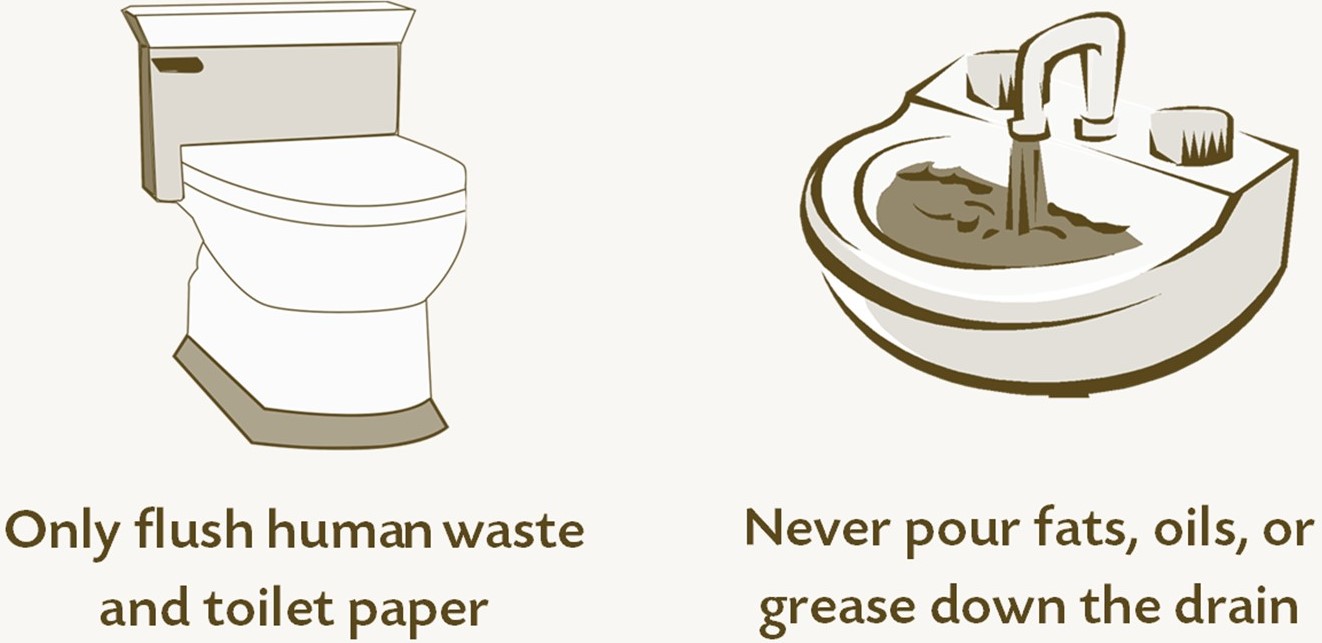What Not to Flush - And Why
It's easy to go about your business every day without thinking about the collection systems that ensure materials flushed down the toilet reach the appropriate destination without issue. We get it. A lot of us just don't want to go there! Ensuring wastewater systems are used properly and cared for reduces the risk of having to give what goes down the drain or toilets a second thought.
Only Flush the 3Ps
All wastewater systems - privately owned and municipally owned/operated - were designed for a specific purpose and, for that reason, can only manage toilet paper. For quick reference, things that are safe to flush are often called "the 3 Ps" - pee, poo and paper. If it's not coming from your body, and it's not toilet paper, it shouldn't be entering wastewater systems. All other items - even ones labelled flushable - can cause costly and destructive issues when flushed down toilets and drains, and should instead be discarded in the trash.
Keep Wipes Out of the Pipes
There is no version of disposable wipes on the market today that are safe to flush - not even the products labelled as flushable. These wipes can clog critical piping and pumping stations, block aeration equipment, increase the likelihood of sewer backups and negatively impact the wastewater collection and treatment process.
Flushing inorganic materials that are not designed to decompose or dissolve in wastewater systems increases the risk of costly damages, problematic odours and inconvenient service interruptions. The only way to clear obstructions is to disassemble pumps and equipment, and physically remove the sewer debris by hand. This leads to a significant increase in maintenance costs, odours in communities, and puts homes and/or places of business at risk of a sewer backup.
Content reproduced with permission from the Municipality of the County of Kings.


